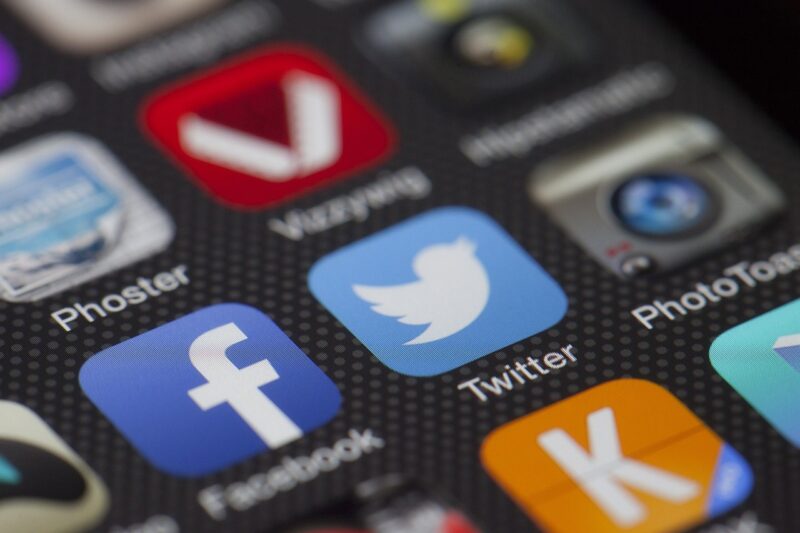Exploring the Impact of Social Media on Our Daily Interactions
November 18, 2024

Social media has transformed how we communicate, share information, and interact with one another. Platforms such as Facebook, Instagram, Twitter, and TikTok have not only changed our technological landscape but have also created new paradigms for social interaction. In this article, we will dive deep into the multifaceted ways social media impacts our daily lives, our relationships, and even our self-perception.
1. The Rise of Social Media: A Historical Perspective
The journey of social media can be traced back to the early 2000s when platforms like Six Degrees and Friendster began to emerge. These platforms laid the groundwork for what would later become a global phenomenon. With the advent of Facebook in 2004 and Twitter in 2006, the landscape of social interaction began to change dramatically. Today, over 4.7 billion people globally use social media, making it a crucial part of everyday life for billions.
The rise of social media coincides with drastic changes in our communication habits, notably:
- Instant Communication: Social media allows for immediate messaging and sharing of information, breaking geographical barriers.
- User-Generated Content: Individuals can create and disseminate their content, leading to an explosion of diverse voices and opinions.
- Influence on Trends: Social media platforms have become trendsetters, shaping opinions and consumer behavior in real time.
Understanding the origins of social media gives context to its profound effect on modern interactions.
2. Social Media and Communication: Bridging Distances
One of the primary impacts of social media is its ability to facilitate communication. Friends and family are now just a click away, and people can maintain relationships despite physical separation. Here are some ways in which social media is bridging distances:
- Staying Connected: Through platforms like WhatsApp, Messenger, and Snapchat, individuals can quickly share updates and feel connected regardless of distance.
- Crisis Communication: Social media has proven essential in times of crisis, providing updates and connections in real-time during natural disasters or emergencies.
- Global Networking: It connects people globally, allowing for interactions beyond traditional networking boundaries. This is particularly beneficial for business professionals looking to expand their network.
While these benefits are significant, there are also drawbacks to constant connectivity.
3. The Double-Edged Sword of Social Media
Social media acts as a double-edged sword, providing both benefits and challenges to our daily interactions:
- Social Isolation: Paradoxically, while social media connects us, it can also lead to feelings of isolation. People may replace face-to-face interactions with online ones, which can be less fulfilling and more superficial.
- Comparison and Self-esteem Issues: Constant exposure to curated content often leads to unhealthy comparisons. Individuals may feel inadequate when comparing their lives to the highlight reels of others.
- Misinformation: The rapid spread of information often includes false or misleading content, complicating our ability to discern truth from fiction in news and social issues.
This duality of impact requires navigation skills and awareness to maximize benefits while minimizing pitfalls.
4. The Changing Nature of Relationships
Social media has reshaped how we build and maintain relationships. From friendships to romantic partnerships, interactions have evolved:
- New Forms of Interaction: People often communicate through text, emojis, GIFs, and memes, which can dilute the richness of face-to-face conversations.
- Influence on Dating: Online dating apps and social media platforms have facilitated the dating landscape, allowing for more opportunities to meet potential partners but also introducing new complexities, such as ghosting and superficiality.
- Virtual Friendships: Many individuals maintain friendships primarily through social media, leading to meaningful connections that may or may not translate to offline interactions.
However, this shift also necessitates awareness of how online dynamics translate to our emotional and psychological health.
5. Social Media’s Role in Mental Health
The impact of social media on mental health is a growing area of research. Positive and negative correlations have emerged:
- Support Communities: Online support groups can provide comfort and understanding for individuals struggling with mental health issues, helping them feel less alone.
- Anxiety and Depression: However, excessive use can lead to increased anxiety and feelings of depression, especially among those who engage in social comparison.
- Mood Regulation: Some people use social media to regulate their moods, either through positive engagement or, conversely, through toxic interactions.
Understanding this complex relationship is crucial in fostering healthier social media habits and improving individual well-being.
6. The Influence of Social Media on Culture and Trends
Social media does not just influence individuals; it shapes culture as a whole. Trends emerge and evolve at lightning speed. Consider:
- Viral Challenges and Trends: Social media platforms are often the birthplace of viral challenges that can captivate millions, altering consumption habits and behaviors in various sectors from fashion to food.
- Shifts in Communication Styles: The way we express ourselves culturally has shifted. The use of abbreviations, acronyms, and emojis has created a new dialect of communication that reflects contemporary interactions.
- Artistic Expression: Artists and creators have found new avenues for showcasing their work, leading to the democratization of art but also raising debates on copyright and originality.
Analyzing how social media shapes our culture can provide insight into its long-term impacts on societal norms and values.
Conclusion: Navigating Social Media in Our Lives
Social media is a powerful tool that profoundly affects our daily interactions, relationships, and overall well-being. As we explore its impact, we must strive for balance—maximizing settings and features that enhance our lives while being cautious of the potential pitfalls. Understanding the dynamics of social media not only helps us become better navigators of these platforms but also shapes how we relate to ourselves and each other in an increasingly digital world.
By consciously engaging with social media and fostering meaningful relationships both online and offline, we can harness its benefits while mitigating its negative impacts. The key lies in mindful use and self-awareness in an ever-evolving digital landscape.







